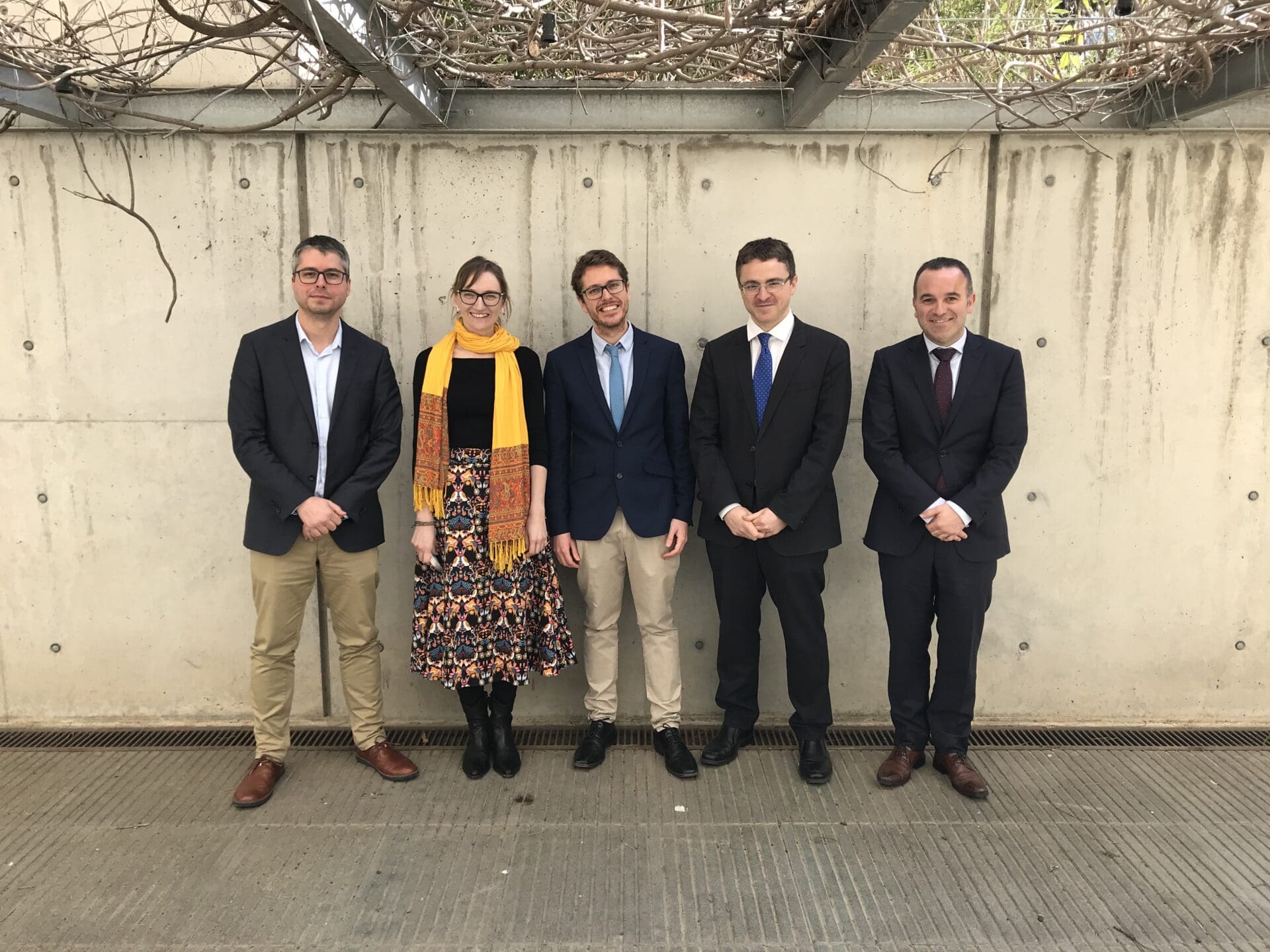Congratulations Dr. Börjesson!
Marino Börjesson, PhD student under the supervision of Prof. Rubén Martín (ICIQ), has defended his PhD thesis entitled “Ni-Catalyzed Reductive Carboxylation Reactions with Carbon Dioxide” (assigned to the Department of Analytical Chemistry & Organic Chemistry of the Universitat Rovira i Virgili) publicly on February 20th at the ICIQ Auditorium.
The members of the examining committee were: Prof. Cristina Nevado (University of Zurich), Dr. Marcos Suero (ICIQ) and Dr. Arkaitz Correa (University of the Basque Country).
Dr. Börjesson studied Chemistry at the University of Granada (UGR). In 2014 he joined the group of Prof. Ruben Martin at ICIQ, to pursue his MSc from University Rovira i Virgili (URV) in time, he began his PhD studies in the same group. In his spare time, he likes cycling, running and climbing.
Why did you become a scientist?
I have always been a curious person and enjoyed science more than the rest of the subjects at school. But it wasn’t until I started to study chemistry in university that I decided to focus my career on research.
From the lessons learnt at ICIQ, which ones do you value the most?
I think the most valuable lessons I’ve learnt were from simply being at ICIQ. Working in a high-level research centre with a lot of talented people pushes you to learn constantly and improve yourself every day.
What ICIQ moment you’ll never forget?
ICIQ’s Christmas lunch of 2018. It was really fun to see everybody from ICIQ involved in playing games, chilling, singing karaoke and enjoying. I will miss a lot ICIQ’s environment and all the people I met here.
What do you wish you had known at the beginning of your PhD?
I wish I had known that research takes a lot of time and effort. Working hard is indeed important to achieve results, but it’s more important not to get frustrated and to learn from your failures.
Where are you going next? What will you do there?
I’m looking for opportunities to do research in Industry. I would like to go to Switzerland or the UK, but I don’t’ have a particular destination at the moment.
If you were a piece of lab equipment, what would you be?
I would like to be a reaction flask. First of all, because I would be able to experience and see the whole process of a reaction, but more importantly to be able to spend long hours chilling in the rotavap
Related news

Let's create a brighter future
Join our team to work with renowned researchers, tackle groundbreaking
projects and contribute to meaningful scientific advancements








 20-12-2024
20-12-2024 


















